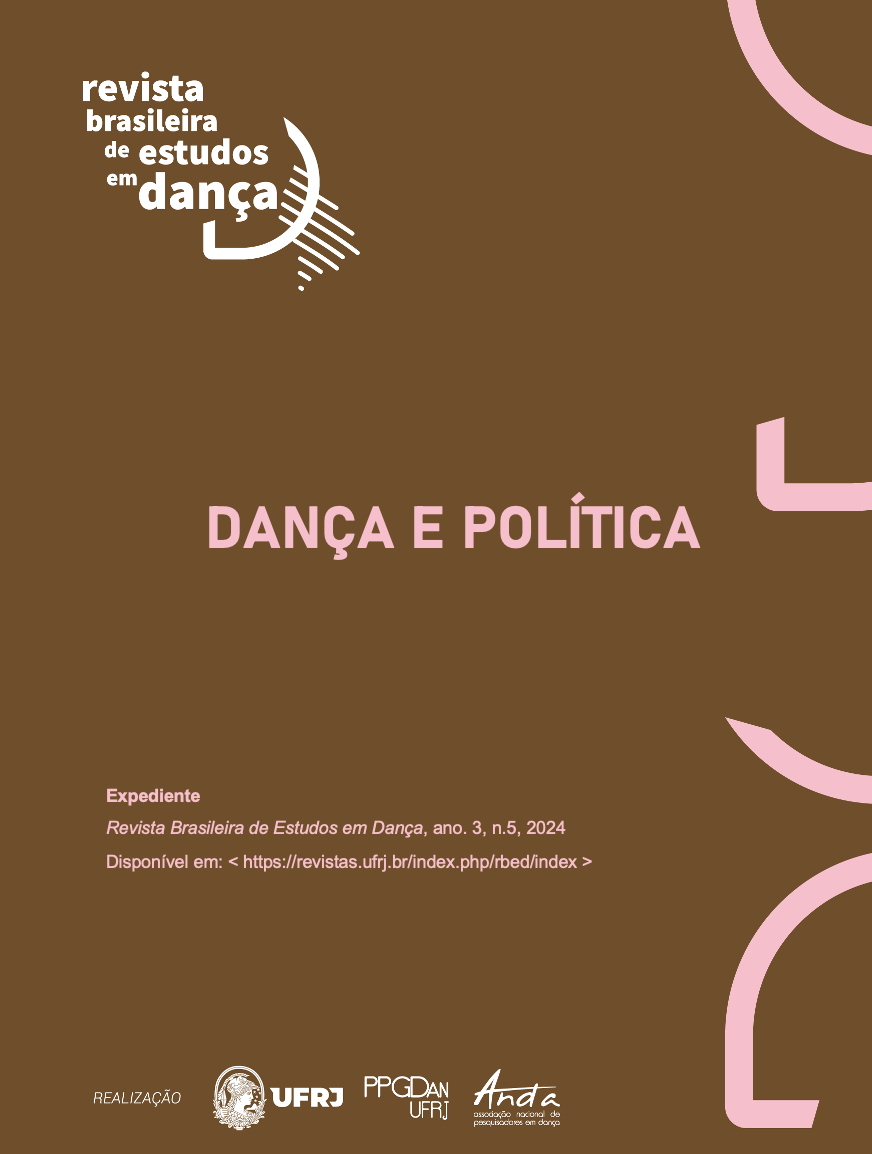A dance rehearsal/essay
DOI:
https://doi.org/10.58786/rbed.2024.v3.n5.64190Keywords:
Dança, Política, ContracolonialidadeAbstract
“A dance rehearsal” was born as a conversation circle or, specifically, a samba circle. Diversity and circularity, which puts everyone on the same level, are structuring factors: it's not enough to talk, or samba, only with Antônio Bispo dos Santos - a quilombola thinker of countercoloniality and the main author of this essay. If the roda is to be good, it needs more people: theoreticians and practitioners, canonical and popular, dialogue in the gyre, which outlines issues of dance understood as a way of life, intangible cultural heritage, work, profession and field of knowledge - even if, at times, these many dimensions clash with each other. In the gingado, a discussion opens up about a counter-colonial democratization that goes beyond the recognition and appreciation of non-hegemonic knowledge at the university and also deals with a methodological and formal update.
References
KRENAK, A. Futuro Ancestral. São Paulo: Companhia das Letras, 2022.
LEPECKI, A. Exaurir a dança: performance e a política do movimento. Tradução: Pablo Assumpção Barros Costa. São Paulo: Annablume, 2017.
MERLEAU-PONTY, M. Fenomenologia da percepção. São Paulo: Martins Fontes, 1994.
O., B. Pedagogias do chão: arte, política e disputa na experiência do JAMAC. São Paulo: autoria compartilhada. No prelo.
PAES, G. B. A. Dança e estado: dispositivos de centralização do poder e pulverização do dissenso. Salvador: Edufba, 2021.
RAMOS, N. Fooquedeu: um diário. São Paulo, 2022.
SANTOS, A. B. A terra dá, a terra quer. São Paulo: Ubu Editora/ PISEAGRAMA, 2023.
UKELES, M. L. (s.d.) Manifesto for Maintenance Art, 1969!. Ronald Feldman Gallery, New York. Disponível em: https://feldmangallery.com/exhibition/manifesto-for-maintenance-art-1969. Acesso em: 29/05/2024.
Downloads
Published
How to Cite
Issue
Section
License
Authors who publish in the Revista Brasileira de Estudos em Dança are
responsible for the content of signed articles and retain copyright.
They grant the journal the right of first publication with the work simultaneously
licensed under the Creative Commons Attribution-NonCommercial 4.0 License
(Open Archives Initiative - OAI). This feature, used for open-access journals,
allows sharing work for non-commercial purposes and acknowledges
authorship. If the text is later published in another vehicle, the author
must inform that it was initially published as an article in the Revista Brasileira
de Estudos em Dança. Therefore, even if the journal owns the first publication,
authors are entitled to publish their work in institutional repositories or on
their personal pages, even if the editorial process has not been completed.
The journal reserves the right to make normative, orthographic, and grammatical changes to maintain the language standard, respecting the authorial style.

